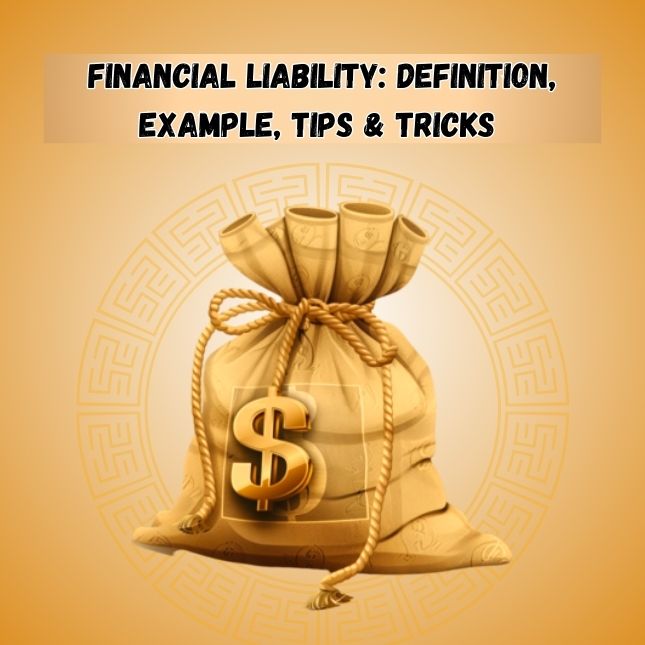Everyone wants to be financially free in order to live a sound life. Financial liabilities management is the essential part of achieving financial freedom. Whether it is mortgage, credit or debit card, personal loan, understanding how to pay off financial liabilities effectively can impact your financial conditions.This article will help you in understanding liabilities meaning, how they work and practical tips and tricks to pay liabilities off. Let’s read along.
What is liability?
In financial terms, a liability is commitment or obligation that needs a person or company to pay money or give up a service. It shows the obligations to others such as unpaid bills, mortgages or loans.
Example:
For instance, if you have a car loan or credit card debt, they are considered as liabilities. Why? Because a person is obligated to pay them back over time. Understanding of liabilities means that how they fit into your financial planning is helpful for effective money management.
If not managed properly, liabilities can lead to financial stress and even debt accumulation. For avoiding this financial education and effective money management come into play. By understanding how liabilities work and their purpose, you can make informed decisions about borrowing and repayment.
Purpose of Liabilities and How They work?
Liabilities are not always negative. They can help a person and business to grow by giving the necessary funds to make purchases or investments.
For instance, taking out a mortgage allows you to buy a house without paying the full amount upfront. Businesses use liabilities for their operations expansions, purchase equipment or finance other investments.
However, if not managed properly, liabilities create financial stress and even debt accumulation. This is where financial education and effective money management come into play. By understanding how liabilities work and the purpose of it. You can make informed decisions about borrowings and repayment.
Types of Liabilities
Liabilities are mainly categorized into three main types.
Non-current liabilities
These are long-term debts that do not need immediate payments. Mortgages, student loans and long-term business loans fall under this category. For instance, understanding BOI mortgage interest rates inIreland can help in planning for non-current liabilities.
Current Liabilities
These are short-term obligations that need to be paid within a year. Examples include credit card debt, utility bills, and short-term loans. Proper income planning and a budget planner can help manage these efficiently.
Contingent liabilities
These are potential liabilities that occur depending upon the outcome of future events. An example would be a lawsuit that might need financial compensation if needed.
How to pay off your financial Liabilities
Below are some different methods to help you eliminate your financial liabilities.
Budgeting Tips
Use a budget planner to track off your income expenses by using a budget friendly planner. Allocate a specific portion of your income towards paying off debts each month. Calculated budget planning is needed for paying off liabilities.
Snowball Method
Snowball methods include paying off the smallest debt first while making minimum payments on the other debts. When the smallest debt is cleared once, the amount allocated for it is rolled over to the next smallest debt, creating a snowball effect.
Credit Consolidation
Credit consolidation focused on pairing credit card balances into a single, manageable payment. It decreases the burden of tracking multiple due dates and interest rates.
Avalanche method
With the avalanche method, one can focus on paying off debts with the highest interest rates first. This approach saves money on interest in the long-run, making it a smart financial solution for high-interest debts.
Debt Consolidation
Debt consolidation involves combining multiple debts into one with a lower interest rate. This simplifies payments and can save you money on interest. It is typically used for managing credit card debt.
Few tip and tricks to pay financial liabilities
Paying off financial liabilities can be challenging, but with the right strategies, it is achievable. Here are some practical tips and tricks:
-
Make a debt plan
Includes interest rates and minimum payments outlines all your liabilities. Make a plan that prioritises high-interest debts while making you meet all minimum payments.
-
Cut Unnecessary Expenses
Identification of unneeded expenses and redirects to save the money towards debt repayment. This is an effective personal finance plan that helps in achieving financial freedom.
-
Increase your income streams
To pay off liabilities one must create an additional income stream for themselves. Consider taking on side hustle or running a small business to increase your income stream. Use the additional funds to accelerate your debt yourself.
-
Negotiate Lower Interest rates
Contact your creditors to discuss lower interest rates. This can drastically reduce your total repayment amount and make it easier to pay off your liabilities.
-
Use financial planning tools
For managing finances effectively, use budget planners, credit monitoring tools, and loan comparison platforms for up-to-date financial management.These tools give a clear picture of your financial situations to help you make financial decisions.
Conclusion
Paying off financial obligations needs discipline, planning and proper strategy. One can get control of his/her finances by understanding liabilities. How they work, and various repayments options. By applying excellent money management such as budgeting, debt consolidation and income planning it will help in attaining financial freedom.
Frequently asked Questions
How might financial education help you manage your liabilities?
Financial education teaches people about money management, budgeting, and effective debt repayment tactics, allowing them to make more informed financial decisions.
Are there any specific financial options accessible in Ireland for paying off liabilities?
Yes, Ireland’s financial institutions provide debt consolidation loans, mortgage refinancing, and budgeting tools. It is best to evaluate loan choices and interest rates, such as BOI mortgage interest rates, to discover the most suitable financial solution.
How can budgeting help you pay off debt?
Budgeting helps by tracking income and expenses, allowing you to set aside a portion of your money for debt repayment. It also helps to avoid excessive spending.
What’s the difference between debt and credit consolidation?
Debt consolidation combines various debts into a single loan, usually with a cheaper interest rate. Credit consolidation focuses on credit card balances, streamlining payments.
What is the greatest strategy to pay off financial obligations?
The ideal strategy to pay off financial commitments is to design a strategic payback plan, prioritize high-interest bills, and employ techniques such as debt consolidation or the avalanche method.






